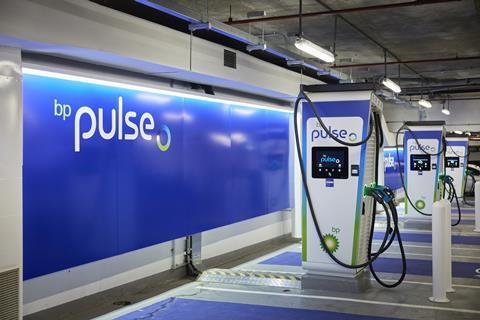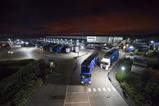BP’s announcement this week that it would cut investments in renewable energy projects and pivot back towards oil and gas production has left a question mark over its plan to set up Europe-wide eHGV charging infrastructure.

Almost exactly a year ago, BP Pulse – the electric charging infrastructure arm of the energy giant – said it had acquired the freehold of Ashford International truckstop next to the M20 in Kent, as part of a drive to set up electric lorry chargers.
But asked how this new strategy would affect BP Pulse, the company told Motor Transport “it wouldn’t be appropriate to comment”.
BP CE Murray Auchincloss said it had gone “too far, too fast” in its transition away from fossil fuels and that it was time for a reset.
Auchincloss said: “We are reducing and reallocating capital expenditure to our highest-returning businesses to drive growth, and relentlessly pursuing performance improvements and cost efficiency.
“This is all in service of sustainably growing cash flow and returns.”
The shift came following mounting pressure from investors unhappy at BP’s profits and tumbling share price.
Ashford International potentially has the capacity to host around 20 megawatt chargers, 10 x 400kW chargers and 125 x 100kW chargers.
BP Pulse reckoned the site could enable it to install charging options suitable for on-the-go and overnight lorries.
Last year, Stefan von Dobschuetz, GM at BP Pulse Europe, said: “For fleet operators to consider going electric, they must be confident that the infrastructure is in place to support them.
“That is why we are thrilled to have secured the land to a crucial site near Dover as we strive to meet the evolving needs of HGV operators transitioning to EVs.”
A BP spokesman said its announcement this week covered group global strategy rather than specific entities or projects and so it would not comment or speculate on future plans for BP Pulse.


















